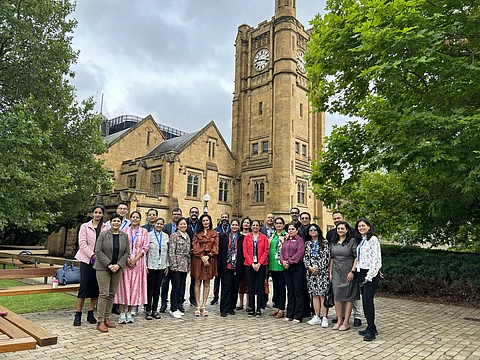

The University of Melbourne’s efforts to tackle the world’s greatest environmental and social issues have seen it skyrocket an impressive 42 places to be ranked ninth best in the world in the latest Quacquarelli Symonds (QS) Sustainability Rankings.
This follows the QS University Rankings in June, where the University of Melbourne was recognised as 14th best university in the world. Increasingly, Indian families are choosing to send their children to study at the university, also ranked eighth in the world for employability of graduates, with Indian students now making up the second largest cohort of international students at its campuses in Australia.
The QS Sustainability Rankings is determined by performance in nine areas within three broad categories – Environmental Impact, Social Impact and Governance.
The University of Melbourne significantly improved its performance in this year’s QS rankings, earning the number one ranking in the Environmental Sustainability area and a number three ranking in the Impact of Education area.
These results reflect significant programmes of incredible and enduring global impact, including:
- Launching the Melbourne Biodiversity Institute and hosting the new Biodiversity Council (Australia-based)
- Launching the university’s platform on Sustainability, Climate, Energy and Environment, One Planet
- Building on the Melbourne Climate Futures focus, focusing on SDG progress in Asia and the Pacific
- Designing sustainability as a touchstone within the University’s Education Strategy. Preparing students as graduates for a sustainable future, who will develop an understanding of the impact of and interplay between biodiversity, environmental, and human systems
- Increasing the number of sustainability-focused leadership roles and subject-matter expert roles within faculty teams, and professional staff
- Delivering empowerment programmes for disadvantaged students, including the Schools Engagement Program in India (Goal 4, 5)
Significant important water and waste management programmes in India (SDG 6)
